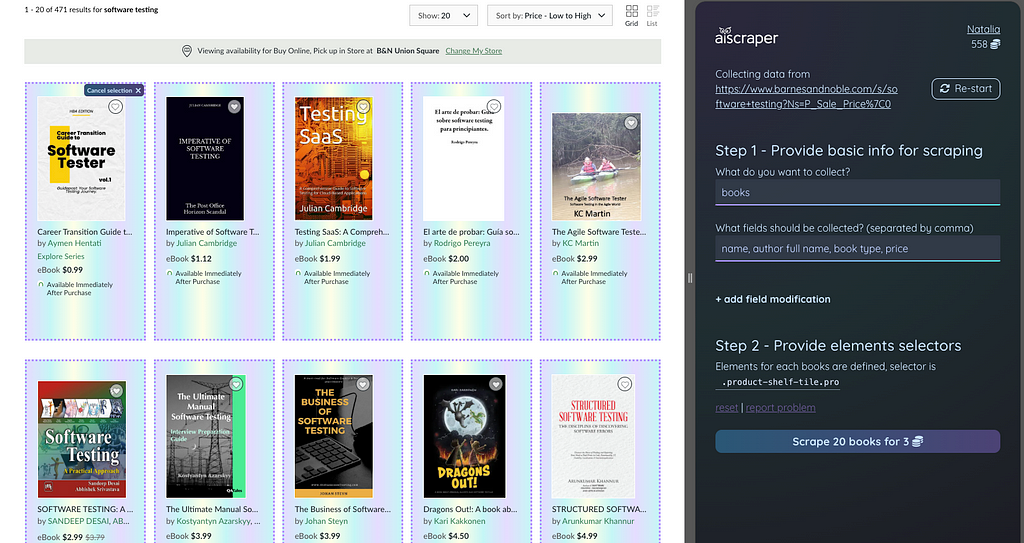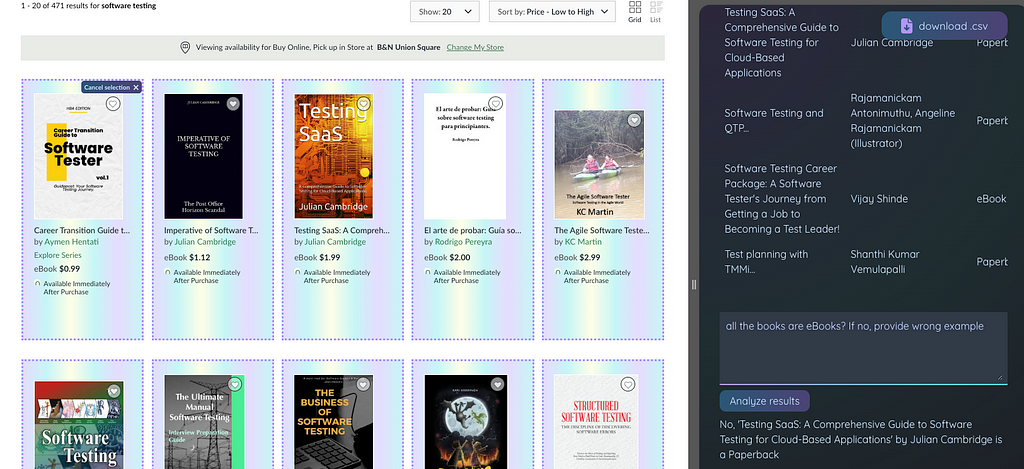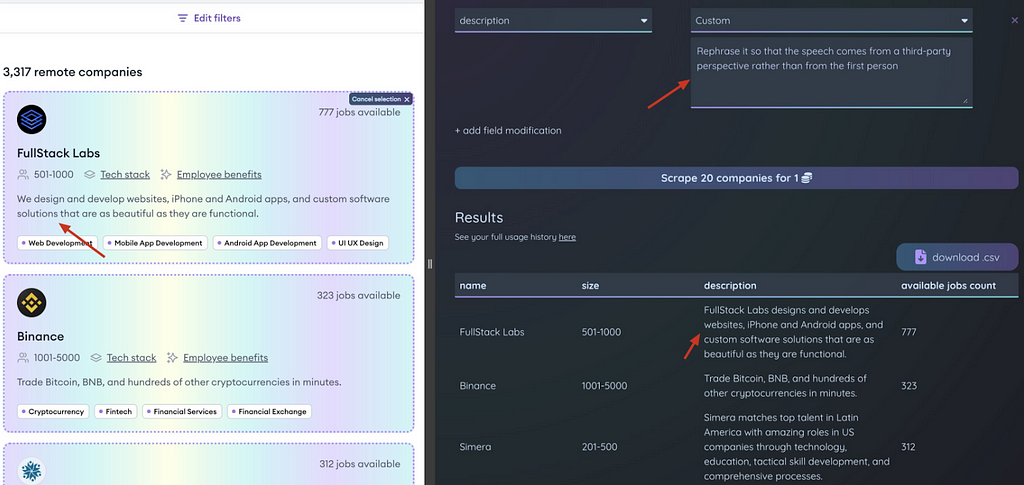
Enhancing Web App Testing Through Web Scraping: A Comprehensive Guide

Introduction
In the digital era, the reliability and functionality of web applications are paramount. Software testing plays a crucial role in ensuring these qualities, and testers are constantly seeking innovative approaches to enhance their methodologies. Web scraping, traditionally associated with data analysis, has emerged as a powerful tool for testers. In this guide, we explore how testers can leverage web scraping techniques to streamline testing processes, improve coverage, and ensure the robustness of web applications.
Use Cases
Let’s explore the use cases of scrapers in testing. For some cases, I will provide an example using a scraper that I created myself. It operates based on AI, allowing data collection, adaptation for specific purposes, and analysis of gathered results! Check it out https://aiscraper.co/. I would also greatly appreciate feedback from testers, as you are the most attentive to details.
Testing Web Applications
With web scraping, testers can automatically extract data from web pages for subsequent analysis and validation of web application functionality. For example, scraping can be used to compare data on pages with expected results of test scenarios.
Let’s consider an example of testing an online store web application where products need to be displayed in a specific order or with a specific filters.
Quickly scrape info from the web page with the extension.

And then ask AI to analyse the result.

Preparing Test Data
Web scraping can assist testers in creating test data, especially when a large volume of diverse information is required. For instance, scraping data from various sources can be beneficial for generating test cases with different input data.
Let’s say we need to prepare test data for a company catalog platform demo, meaning the data should closely resemble reality. Additionally, we require the data in the exact format we’ll send it to our server. We can use a scraper to gather data and immediately modify it to suit our needs.

Then, we simply download the JSON and use it as a payload.
Compatibility and Interface Testing
Testers can employ scraping to check the compatibility of a web application with different browsers, devices, and screen resolutions. For instance, they can automatically scrape the content of a web page from various devices and verify that the application interface displays correctly in all cases.
Monitoring Changes
Through web scraping, testers can monitor changes on websites that may affect application functionality, such as alterations in HTML or CSS structure. This enables prompt detection of issues and adaptation of test scenarios.
Validation of External Dependencies
Using scraping, testers can validate external dependencies, such as the presence of specific data or services on third-party websites used in the application. This can help identify issues related to the absence or modification of these dependencies.
Conclusion
In conclusion, web scraping emerges as a valuable asset in the arsenal of tools available to software testers. Its versatility allows for a wide range of applications, from automating data extraction for testing purposes to monitoring changes on websites that may impact application functionality. By leveraging web scraping techniques, testers can streamline their testing processes, enhance test coverage, and ensure the robustness of web applications.
Moreover, the integration of artificial intelligence with web scraping introduces a new level of efficiency and adaptability, enabling testers to gather, analyze, and modify data with unprecedented speed and accuracy. This synergy between technology and testing not only accelerates the testing lifecycle but also empowers testers to address complex testing challenges with greater precision.
I have a popular article, and the content for this article was collected from GitHub using https://aiscraper.co/. So, you can explore various use cases for this tool. Share your ideas in the comments!
